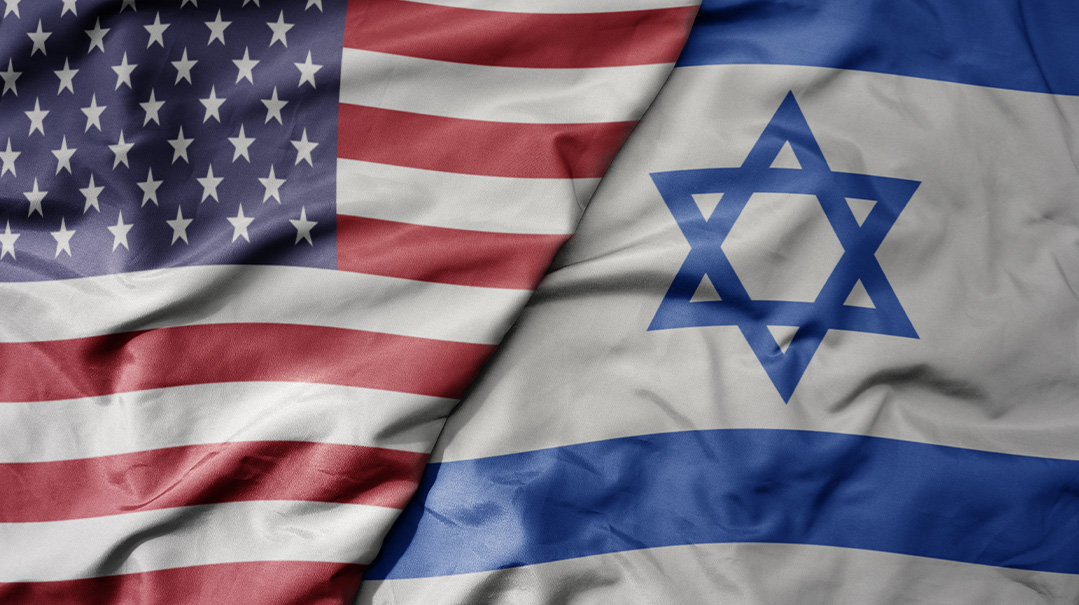Let’s Debate That

She had a point, but not the one she thought she was making, and it is one deeply damaging to her case
IN
late November, a sold-out crowd of 2,630 gathered in Toronto’s Roy Thomson Hall to hear four distinguished journalists debate the proposition “Do not trust mainstream media.” Arguing for the proposition were Matt Taibbi, author of Hate Inc.: Why Today’s Media Makes Us Despise Each Other and one of the three journalists granted access by Elon Musk to the emails of the previous regime at Twitter; and Douglas Murray, a writer for England’s Spectator and author of The War on the West and The Strange Death of Europe. Pitted against them were New York Times columnist Michelle Goldberg and Malcolm Gladwell, the author of multiple mega-best-sellers, including The Tipping Point and Outliers.
At the beginning of the evening’s event, which was the 28th in the series of semi-annual Munk Debates held in Toronto since 2008, the audience was polled on the proposition; 48% supported it and 52% opposed. Even making allowances for differences between Canada and the United States — where, according to an October New York Times-Sienna College poll, 84% of respondents view the media as a threat to democracy, including 59% who view it as a “major threat” — that initial result suggests an educated and left-wing audience, who have more confidence in the legacy media. Nevertheless, two hours later, that figure had shifted to 67% support for the proposition, with only 33% opposed — a 38-point shift, the largest in the history of the Munk Debates.
That swing cannot be laid at the feet of incompetent debaters. All four debaters are highly intelligent, articulate, and veteran journalists. I would guess that Goldberg debated in high school. She repeatedly made the sort of “inherency arguments” favored by high school debaters: Yes, the current system has it flaws, but they are not inherent flaws, beyond correction. Sure, the mainstream media makes mistakes, she urged, but only the MSM has self-corrective processes in place to ensure that inaccuracies are caught and corrected.
I’m also pretty sure that Douglas Murray was well-schooled in Oxford style debate, which puts a premium on quick thinking and wit tinged with malice. Every time the debate turned personal and nasty, he showed his rapier to be sharper than Gladwell’s.
TAIBBI BEGAN by providing a theory of why trust in the mainstream media has plummeted so sharply over the past half century. In the earlier period, almost the entire country listened to three nightly news broadcasts, all of which appealed to the entire population. The Gallup Poll twice voted CBS news anchor Walter Cronkite the most trusted man in America.
With the proliferation of news sources in the Internet age, the media business model switched to one in which an outlet aims at a particular demographic and feeds it what it wants to hear and avoids what it does not. Ninety-three percent of Fox News viewers vote Republican, and 95% of MSNBC viewers Democratic. As a consequence, editors are more concerned with not offending the target audience than with getting the story right. So much for “All the News Fit to Print.”
Goldberg and Gladwell totally ignored Taibbi’s theory, apart from Gladwell’s jibe, repeated four times, about Taibbi’s affection for the 1950s when people like himself, i.e., blacks, and Goldberg, i.e., women, were nowhere to be found in journalism, and Cronkite served as the “Amen corner” for the government.
Gladwell’s witless japery likely had a good deal to do with the huge swing against his side. Taibbi wrote for Rolling Stone for 15 years, hardly a bastion of right-wing or 1950s thought. Cronkite was voted the most trusted man in America in the 1970s, when there were already a number of prominent blacks and women in media. And perhaps Gladwell forgot, or never knew, that Cronkite announced on air in the wake of the Viet Cong’s 1968 Tet offensive, and his own personal visit to Vietnam, that the war could not be won. At which point, LBJ moaned, “If I’ve lost Walter Cronkite, I’ve lost Middle America.”
THE DEBATE was not about whether journalists make mistakes. Of course they do. Rather the debate was about whether what Goldberg called the “ethos” of the mainstream press, to pursue truth and correct for error, is any longer credible. The best evidence of the death of that ethos is the near total absence of embarrassment or introspection in the mainstream media after the recent collapse of multiple long-standing narratives.
In explaining why the legacy press completely failed to detect a whiff of a possible Trump victory in 2016, Goldberg pointed to the decimation of small local newspapers, and with it the move of journalism from a blue-collar profession, in which her father, an indifferent student, could go from the sports pages to being the managing editor of the Buffalo News, to one for graduates of elite universities.
She had a point, but not the one she thought she was making, and it is one deeply damaging to her case. She blamed “amok capitalism.” But the real problem with regard to media trustworthiness is that graduates of elite schools, marinated in campus post-modernism, do not believe in objective truth, but only in competing narratives. And for them, the proper response to a “bad” narrative is to counter it not with facts and arguments, but with suppression.
The recent demand by Penguin Random House employees and others in the publishing industry that Random House revoke its contract with Justice Amy Coney Barrett, because her joining in the majority opinion in Dobbs constituted an “assault on inalienable human rights,” captures the mindset. It was left to the publisher to school the young Turks in the old-fashioned view that in “an intelligent free society we need to disseminate ideas in a robust form so that we can discuss them.”
The penchant for narrative creation was evident in a 2021 letter signed by 500 journalists, mostly drawn from legacy news outlets, and including Nikole Hannah-Jones, creator of the New York Times’s 1619 Project, objecting to media stories about 4,000 Hamas rockets fired at Israeli civilians in the spring of 2021. The entire media focus, the signatories argued, should be on Israel’s vast military superiority, and how Israel, “an apartheid state,” persecutes Palestinians in the name of “ethnic supremacy.”
So much for those old virtues of fairness, accuracy, and balance. Absent Hamas’s attempts to kill Israeli civilians and to create Palestinian martyrs, Israel’s military superiority would be irrelevant, since it would never be deployed.
Not surprisingly, many of the recent media scandals have revolved around suppression — i.e., sins of omission, not commission. The classic case is Twitter’s removal of the New York Post story on Hunter Biden’s laptop, just prior to the 2020 presidential election. The legacy media studiously ignored the story prior to the election, relying on the slender reed of a statement by 51 former intelligence officials that it bore the earmarks of Russian disinformation.
That claim, however, was preposterous. The younger Biden never denied it was his laptop, and by the time the story was published, the FBI had had the laptop in its possession for a year, with plenty of time to determine its veracity. MSM reporters did not even make the simplest possible test of the Post scoop: Call up those on various email chains and find out whether they had received or sent the emails in question.
Goldberg revealed that in their pre-debate preparation, she had told Gladwell that Hunter’s laptop would come up, and he had responded dismissively, “Who would care about that?” Well, voters in 2020 surely should have. The issue was never about whether Hunter is dissolute — that’s a given. It was whether his father was the “big guy” designated to receive 10% of an influence-peddling scheme with a company closely connected to the Chinese government, as Tony Bobulinski, one of Hunter’s partners, testified.
Today, the MSM is compounding its earlier suppression by retaining almost absolute radio silence on the seven tranches of internal Twitter documents, released by Taibbi, former New York Times columnist Bari Weiss, and environmentalist Michael Shellenberger — which detail, inter alia, Twitter’s violation of its own policies to remove the laptop story under pressure, subtle and not-so-subtle, from the FBI, with whom the major media platforms were in constant communication.
Far from being a non-story, if Twitter and other platforms were acting on government instructions, they arguably lost the immunity to suits under First Amendment that is afforded to private parties.
Another story largely ignored is the likely leak of COVID-19 from a Wuhan lab performing gain-of-function research on coronaviruses to increase lethality, under research grants partly funded by Dr. Anthony Fauci’s National Institute of Allergy and Infectious Diseases (NIAID). Though that is now the view of most virologists, the idea that COVID-19 resulted from human experimentation gone awry was initially ridiculed as far-fetched by the media. Discussion closed.
Yet as long ago as Purim 2000, I presented a compelling argument for the Lab Leak Theory in these pages, based on a series of superb articles by Dr. Norman Doidge in Tablet drawing on open-source information. But at that time, the Lab Leak Theory was dismissed as the product of President Trump’s racist, anti-Chinese sentiment.
The NYT’s longtime senior science writer Nicholas Wade argues in the current issue of City Journal that Fauci was informed early on of abnormalities at a furin cleavage site in the coronavirus much more likely to have emerged from human gene splicing than from natural causes. But the researchers who shared their conclusions with Fauci subsequently reversed field, after receiving substantial grants from USAID. It will be interesting to see whether the MSM media even mentions anything that might sully Saint Fauci’s reputation.
Sins of commission did not, however, go unmentioned in the debate. Taibbi pointed to the tape of Dean Baquet, then executive editor of the Times, telling his newsroom that they had spent three years focusing on the Trump-Russian collusion story, of which nothing had come. He noted that there were going to be a lot of disappointed readers desperate to be rid of Trump who had believed the Times’ breathless reporting, echoed throughout the mainstream media, of the walls closing in on Trump. The Times even won a Pulitzer Prize for its coverage of the non-story.
It’s hard to dismiss three years of daily reporting as a temporary misfire of controls. And indeed, there was ample evidence of one of the points made by Taibbi: The skepticism about government officials that once characterized the media is no longer. Favored politicians, whose leaks fit the narrative, are treated as credible, and their opposite numbers are not.
As the country waited for Special Counsel Robert Mueller’s final report and that of FBI Inspector General Michael Horowitz, into the FBI’s Operation Crossfire Hurricane, Congressman Adam Schiff and Congressman Devin Nunes, the senior Democrat and senior Republican on the House Intelligence Committee, respectively, provided dueling accounts of what those investigations would reveal. The media consistently downplayed Nunes as rural rube hopelessly overmatched against Harvard Law graduate Schiff. But when the reports were published, Nunes was vindicated on every point in dispute, and Schiff was revealed to be a shameless liar.
IN HIS ELOQUENT SUMMATION, Murray stressed how crucial the debate was. Democratic societies can flourish only when there is a high degree of social trust. And that can only happen when there is a widespread commitment to truth-telling among those entrusted to bring facts to the attention of citizens and to place them in context. He noted the statue of George Orwell outside BBC’s main headquarters, with the motto: “The job of a journalist is to tell people facts they don’t want to hear.” Sadly, he said, that is no longer the ethos of either the BBC or of the American legacy media.
RATHER THAN SIMPLY write another article about the failures of modern media, I have chosen to frame this story within the context of an actual live debate. My purpose in doing so is, in part, to make the case for debate as essential to a healthy society — debate, and not attempts to silence or suppress the other side. Regular citizens, including farmers and tradespeople, once stood outside, under a hot sun, listening to Abraham Lincoln and Stephen Douglas debate for hours. And once the ground rules and time limits were set, neither combatant needed or desired the involvement of a moderator, contrary to modern presidential debates.
My Yale Law School classmate and Brookings Institution Fellow Dr. Robert Litan has written a book entitled Resolved: Debate Can Revolutionize Education and Help Save Our Democracy. He advocates for a debate-centered educational system. Something like my AP American history course, which centered on the Amherst Series of great debates in American history, in which we read articles by historians of differing perspectives. Students should learn, he argues, to present both or multiple sides of a particular issue (known as switch sides in high school debate.)
Such debates teach participants to adduce facts and marshal arguments for a particular position. That process helps rid them of the contempt for facts and the dismissiveness, without argument, of other perspectives, that has rendered civil discourse largely impossible.
And as the Munk Debate demonstrates, a good debate can change hearts and minds, which is perhaps why so many contemporary opinion makers prefer suppression.
(Originally featured in Mishpacha, Issue 942. Yonoson Rosenblum may be contacted directly at rosenblum@mishpacha.com)
Oops! We could not locate your form.






